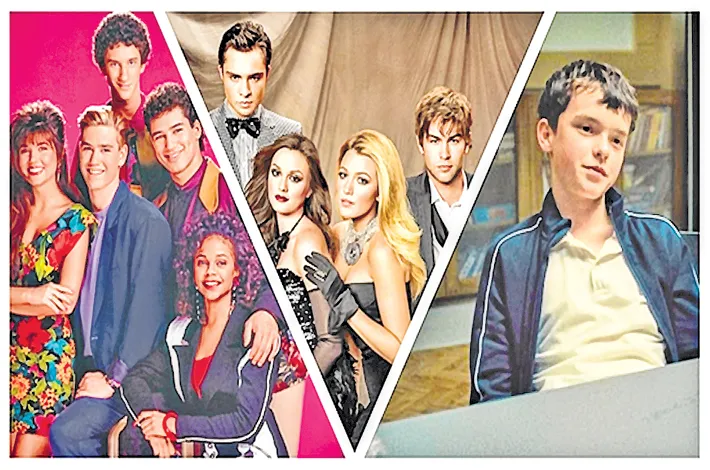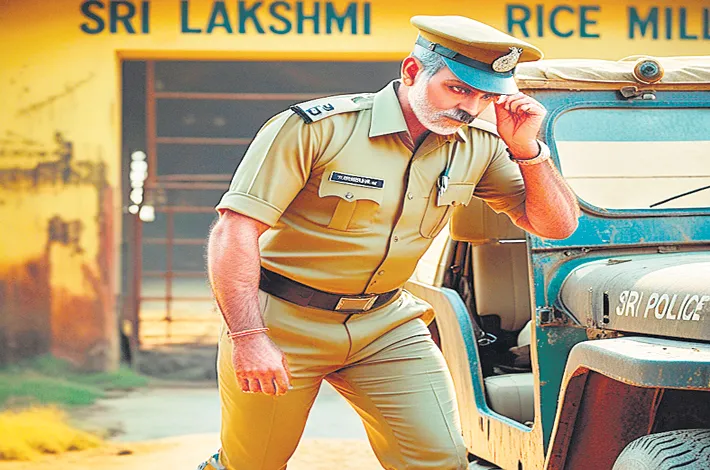Social media toxicity and its fallout harming Adolescence
27-03-2025 12:00:00 AM

The success of the series has started a discussion that should have started years ago. It will take a long time and a lot of positivity to clean the sludge
A few years ago, there was some outrage over the discovery of a WhatsApp group by schoolboys in Delhi on which they were sharing horribly misogynistic content about girls. Like an earlier instance of a schoolboy sharing an inappropriate video of a girl, effectively wrecking her life, while suffering no permanent consequences himself, this one, too, was quickly forgotten.
Now a show titled Adolescence on Netflix has thrown a grenade into the already escalating concerns about social media toxicity that is harming an entire generation of kids. Even freedom of expression advocates are shouting for controls over unlimited internet access to minors. Because like Jamie (played by Owen Cooper) in the show, directed by Philip Barantini, boys are being instigated to hate women (or gays, Blacks, or any ‘other’), and the result is the increase of violent crimes against females by underage boys.
Thirteen-year-old Jamie kills Katie, a female classmate, by repeatedly stabbing her, an act caught on CCTV camera, because she rebuffed his advances. She also called him an incel (involuntary celibate) on Instagram, which is an insult, implying that no woman would want him. That caused such a storm of rage and self-loathing in Jamie that he murdered her.
It is easy to blame absent mothers or lax parenting, but Jamie comes from a stable family, with a stay-at-home mother. Both parents are shocked by their son’s arrest. They wonder if they should have been more attentive to what he got up to behind the closed door of his bedroom, but in reality, no parent can totally control what their child is accessing on their phones and computers.
Adolescence has opened up furious debates about the issue; the Director General of the UK’s National Crime Agency has warned of a “deeply concerning trend of online networks of predominantly teenage boys, dedicated to inflicting harm and committing a range of criminality. These online forums or communities or Com networks see offenders collaborate or compete to cause harm across a broad spectrum of criminality, both on and offline, including cyber fraud, extremism, serious violence, and child sexual abuse.”
In Adolescence, a brief scene hints at how vulnerable minds are affected by what they see or read, without having developed the maturity to analyse for themselves. Katie’s best friend hits a boy she believes was responsible for the murder.
Far from expressing concern over the killing of their classmate, a boy jeers at the one who was beaten because it was a girl who did it. Even at that age, the boy already has warped notions of masculinity. In the show, a child psychologist talking to Jamie in the correctional centre is disturbed by his aggression.
He tells her that another schoolmate had circulated topless photos of Katie, and noticing that she was “flat” and now publicly humiliated, he wanted to ask her out on a date because at that point she would be “weak.” Children are being exposed to sexualised images at such a young age that a 13 year old boy no longer knows where or how to draw the line. He thinks it is okay to post nasty comments on Insta photos of sexy models and then seek a transactional relationship with a teenage girl because that is what boys are supposed to do to get female attention.
In a piece for inews.co.uk, Zing Tsjeng quotes from a report titled Lost Boys, in which “the Centre for Social Justice warns that modern boyhood has gone horribly awry. The independent think-tank points to some startling facts: Boys in the UK are struggling in education, more likely to take their own lives, less likely to get into stable work, and far more likely to be caught up in crime. While young women are increasingly progressive, their male counterparts are signing up to right-wing and ultra-conservative, regressive ideologies.”
This show is based in the UK, so a lot of responses are emerging from there, but the situation is not much better in any other country, including India, where online content is unregulated and capable of radicalising and manipulating young minds. If boys are being exposed to the hate-filled ‘manosphere’, girls are falling prey to harmful beauty standards and confusing behaviour guides, leading to mental health issues. Online bullying can be as destructive as ragging, instances of which are getting to be so brutal that victims are committing suicide.
Says James Thorne, co-writer of the show (with Stephen Graham, who also plays Jamie’s baffled father), “The ideas behind incel culture are very attractive because they make sense of a lot of things: feelings of isolation, low self-worth, feeling unattractive. They tell you that there is a reason why the world is against you: Because the world has been built from a female perspective, and these women have all the power. (These ideas suggest that) you need to better yourself, get in the gym, learn how to manipulate and learn how to harm.”
The success of the series has started a discussion that should have started years ago and might even lead to policy changes. But how much time and infusion of positivity will it take to clean the poisonous sludge that has already infiltrated society?








